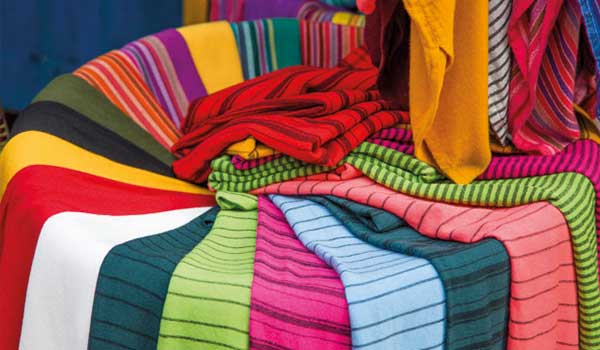Morocco is becoming a growingly attractive destination for global textile companies, as world’s leading textile groups are migrating from traditional Asian manufacturers to closer markets offering favorable conditions, such as Morocco.
Several brands from the European Union, the UK and the U.S. have been sealing deals with Moroccan companies in the textile industry as an outsource, away from their Asian partners.
Spanish brand Mango and group Inditex as well as French group Camaïeu have already established connections with Morocco local producers, local media Media24 notes.
Logistical costs, the downturn caused by the pandemic and the increase of salaries in China can induce western textile giants to look for more favorable partners, Mohammed Boubouh President of the Moroccan Association of textile and clothing industries (AMITH) told Media24.
AMITH former President Karim Tazi confirmed the trend and called on the Moroccan private and public sectors to seize the opportunity.
“The recovery is undeniable, we feel it. Northern European players, such as the British, are arriving in droves to learn about the Moroccan offer and capabilities. Distributors who used to buy exclusively in Asia are now shopping in Morocco,” he also told Media24.
“There is a great demand today. It must be accompanied by a willingness on the part of the private sector and public authorities to take advantage of this momentum. This is a unique opportunity. We have not known in Morocco an opportunity as important to become a major textile player, since the 1980s,” Karim Tazi added.
With the trend, the kingdom of Morocco is set to become a major stakeholder in the global textile industry but several hurdles are still standing in the way. For Boubouh there is a need to provide credit insurance for the Moroccan producers to ease the export process.
Tazi on the other hand urged Moroccan textile companies which are largely specialized in packaging to step up and become producers of finished products.
Read more: Fashion in Morocco
He suggested the creation of textile aggregators in the kingdom as they constitute the connecting link between subcontracted producers and distributors.
These aggregators have know-how that traditional manufacturers do not have, he stressed adding that the Moroccan manufacturers lack several expertise including creativity, marketing, logistics, technical development.
The kingdom though attractive, is facing daunting competition from Turkey, which is also a favorite outsourcing market for the global textile leaders.
“When a Turkish manufacturer buys a Chinese fabric, it exports to Morocco with zero customs duty. While the same Chinese fabric, when purchased by a Moroccan industrialist, makes him pay 12.5% of customs duties. We are taxed not only at the purchase, but also at the sale on the value-added,” Boubouh explains while highlighting the steady devaluation of the Turkish Lira – favorable factor for export.
Tazi on the other hand argues that Turkey’s superiority on Morocco also lies in the commitment to decarbonize their products and establish environment-friendly textile companies.





















